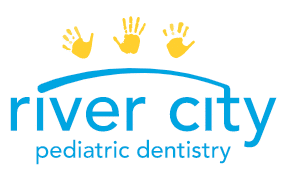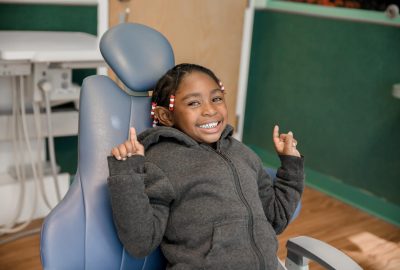Dental emergencies can happen at any time, especially if you have kids who are often active in sports or during playtime! While physical activity has many health benefits, there are always dangers involved when not taking the appropriate precautions. This includes wearing a mouthguard or utilizing appropriate safety equipment; of course, taking the time to appropriately brush and floss regularly also has a great impact on avoiding many dental emergencies.
Here, we will cover the most common types of dental emergencies with advice on what to do and how to treat them at home, along with situations where additional medical attention is appropriate.
Bitten Lip or Tongue
To manage this injury, place an ice pack on the lips or the outside of the cheek to alleviate pain and swelling. For further guidance based on the severity of the injury, please contact our office.
Broken, Chipped, or Fractured Tooth
Contact our office as soon as possible if your child has damaged a tooth. Pain can be managed at home by swishing with warm salt water and applying an ice pack to the outside of the cheek. The tooth may require treatment by a filling or crown to restore strength and health to the tooth.
Broken Jaw
If you suspect that your child has broken their jaw, it’s important that you contact our office immediately. An ice pack may be applied to reduce pain and swelling, but it’s very important that your child avoids moving their jaw until the bone can be examined.
Object Caught Between Teeth
If you suspect that your child has a foreign object stuck between their teeth, instruct them to swish their mouths with warm water to try to loosen it. Next, use dental floss to assist in removing the object. If discomfort persists or the object remains stuck, call our office to schedule an appointment to have it located and removed.
Knocked-Out Tooth
- Permanent tooth – Whenever a permanent tooth is knocked out, we urge you to contact our office as soon as possible. If you can, try to find the tooth, rinse it with water, and place it back in its socket right away! If this is not possible, put the tooth in a glass of milk (not water!) and contact our office! Make sure that when holding the tooth, you avoid touching the tooth’s root structure.
- Primary tooth – Primary teeth do not need to be replaced if they are knocked out. Instead, instruct your child to rinse their mouth with warm saltwater. Make an appointment with our office to see if there are any remaining tooth fragments and to determine the positioning of the permanent tooth. When the permanent tooth has not yet emerged, we might recommend a space maintainer to prevent adjacent teeth from shifting into the open space.
Toothache
When it comes to a toothache, the best thing you can do is prevent it from getting worse until a proper examination can be scheduled for your child. If they’re in pain, there are some ways to make them more comfortable until they get here:
- Swishing warm salt water might help, especially if the toothache is occurring due to debris lodged between the teeth.
- You can also give them oral pain medication to ease the pain.
- Don’t let them eat or drink anything sugary! Sugary drinks will only make the toothache worse and more painful.
Avoiding Injury to Your Child's Teeth
You can minimize the chances of your child experiencing dental emergencies by taking the following preventative measures:
- Encourage daily brushing and flossing habits.
- Insist that your child wear a mouthguard while playing sports.
- Do not allow your child to chew hard candy or ice cubes.
- Bring your child to regular dental visits to ensure we catch problems early.
Soreness/Discomfort
Children may experience some discomfort when braces are applied for the first time or when they are adjusted. In such cases, they can apply ice to their cheeks, take oral pain relievers, or apply wax to relieve any pain. Please call our office for further guidance if the soreness persists after a few days.


